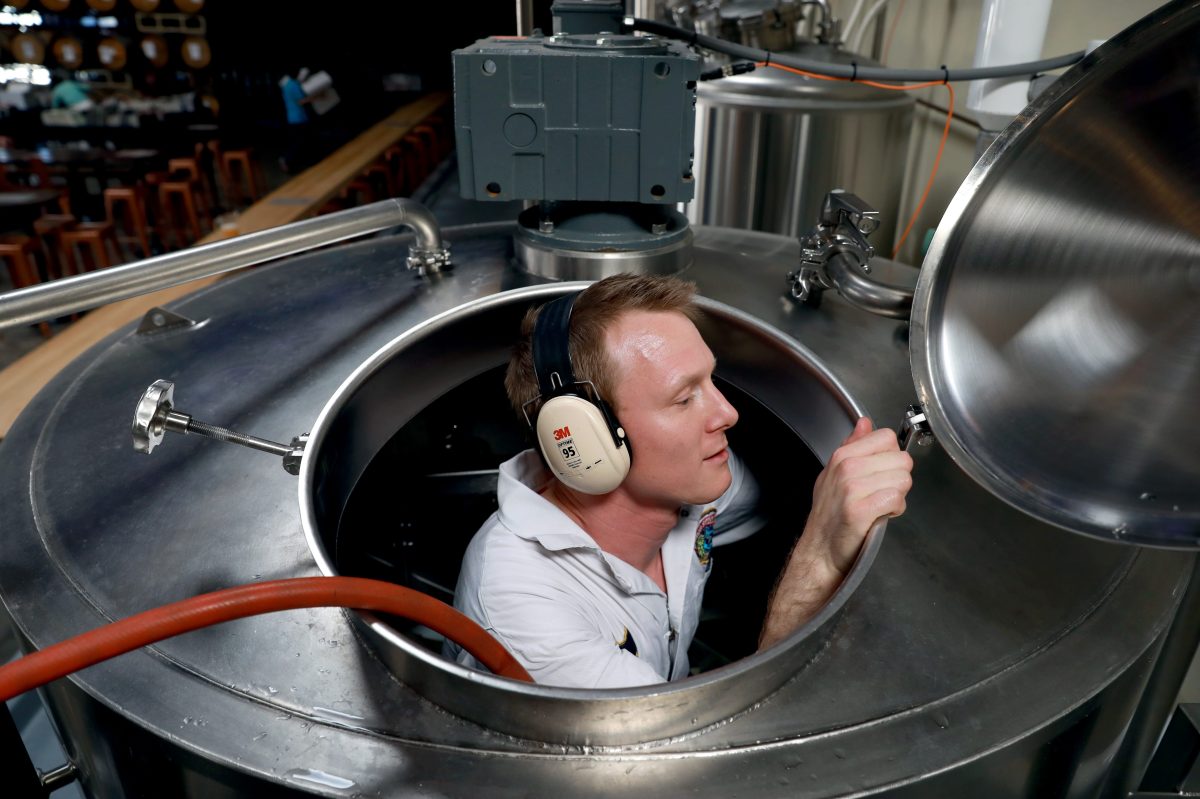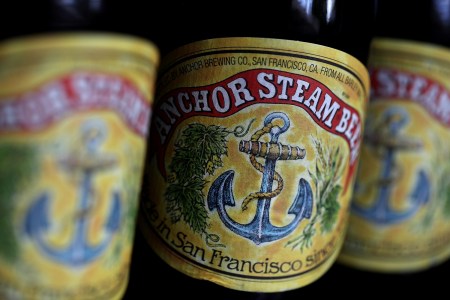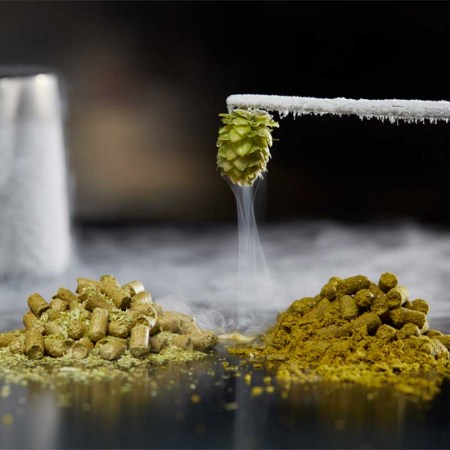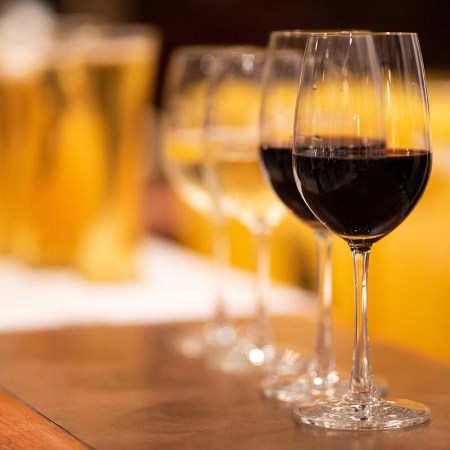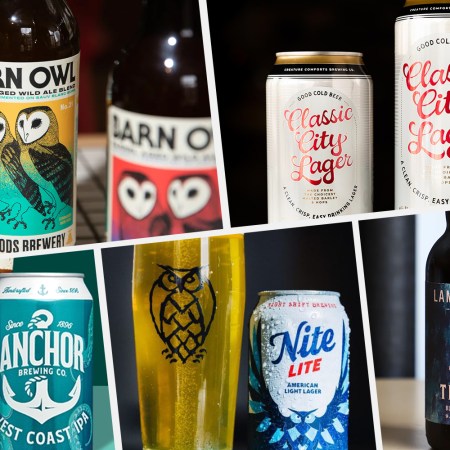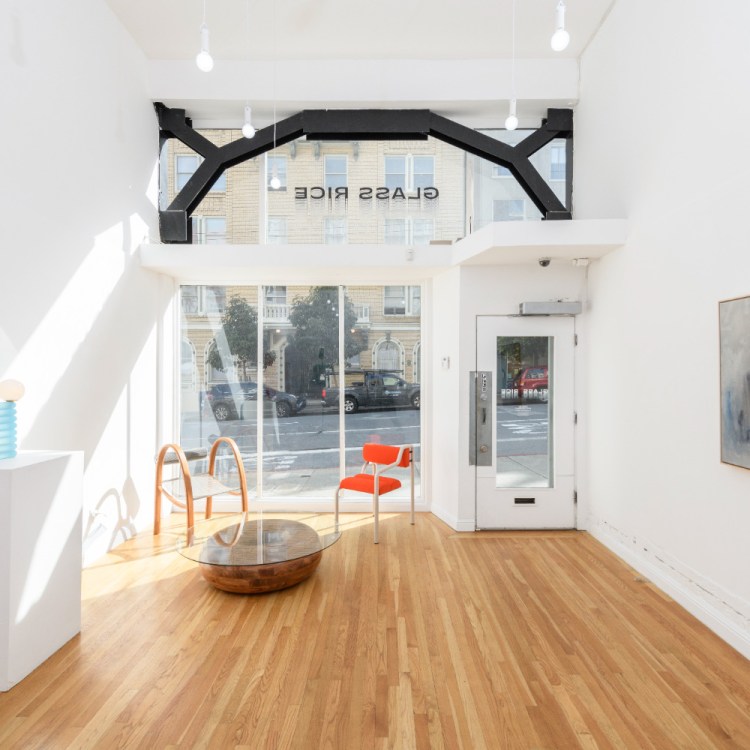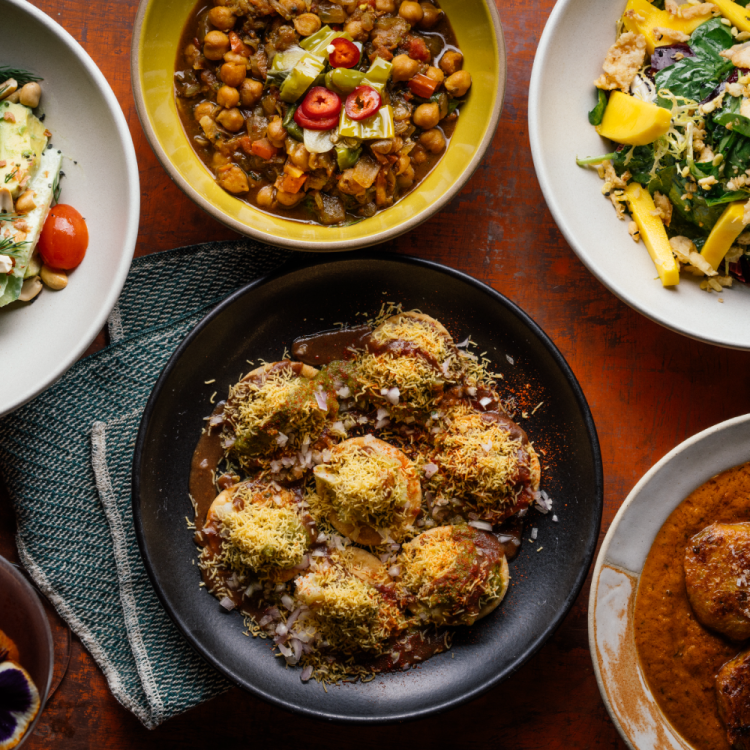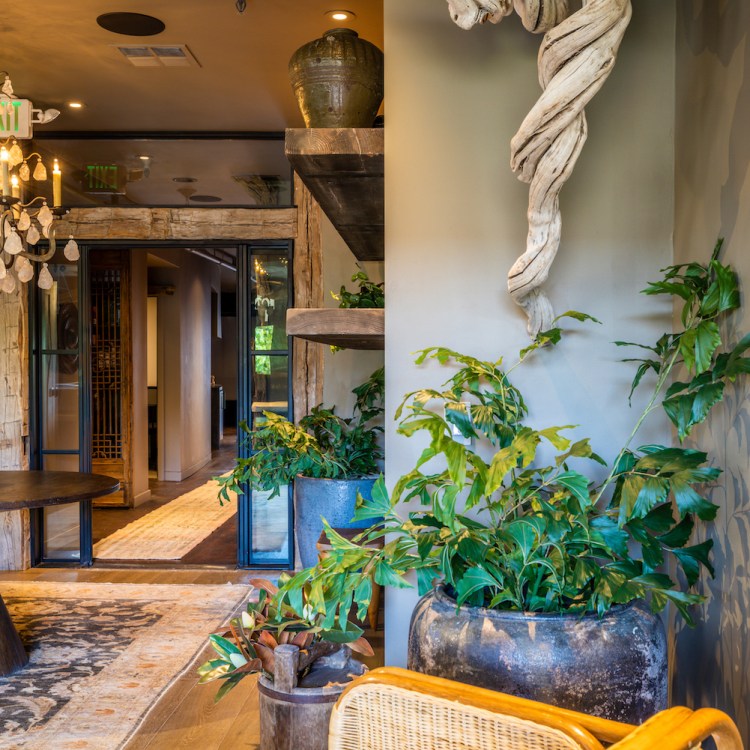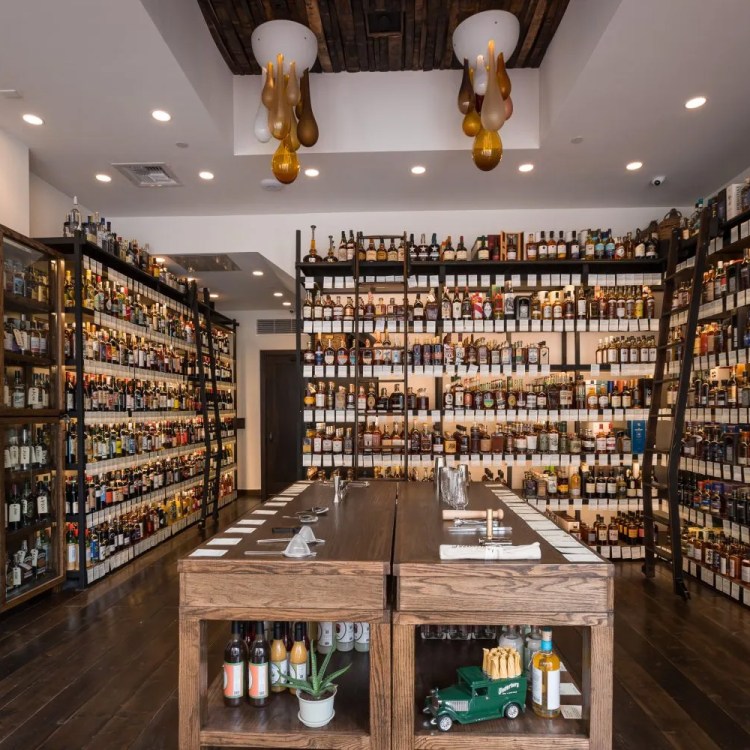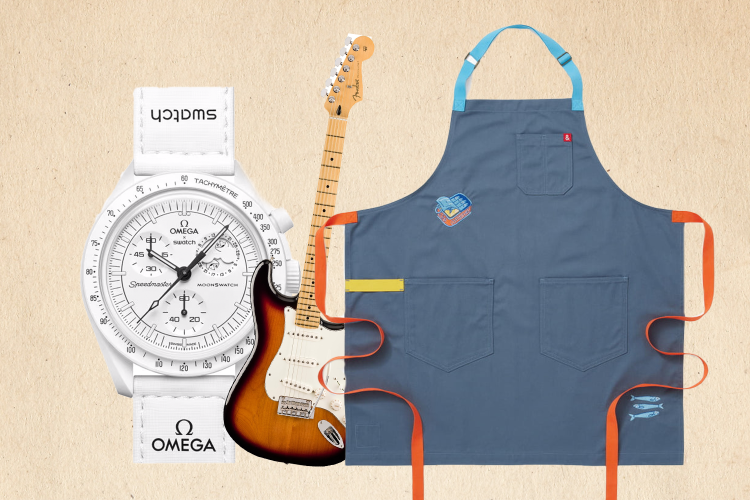What do you ask the most knowledgeable beer dude in San Francisco when you get him on the phone? As a lover of brown ales, light beers, red ales, hell even porters and stouts — anything but IPA — I only had one burning question, really: Why, oh why is every single beer an IPA now???
“You’re not wrong,” says Dane Volek, the head brewmaster at Anchor Brewing Company, a brewery that counts itself as the first craft brewery in America, as it was founded all the way back in 1896. “There certainly are a lot of IPAs. But the other thing I would say is that brewers — as much as they do sometimes like those beers — they love their lagers, their easy-drinking beers, the beers that fuel you through a day. We keep predicting: This will be the year of the lager. And it does feel like it’s happening this year. We’re really starting to see successful strides with lagers again.”
He goes on to explain how much work has gone into the expression of hops, over the years, and how IPAs allow brewers to explore that, noting “there’s just something sexy about hops that people love.” This conversation also ties in with the history of Anchor Brewing, as it was the work of the company’s previous owner, Fritz Maytag, with “dry-hopping” and the first American pale ale, Liberty Ale, that helped jumpstart a renewed interest in craft beer in the mid-’60s. That beer is so famous, even today, that many people think the company’s name is Anchor Steam, and not Anchor Brewing.
As the man currently in charge of brewing not just the company’s flagship product, Anchor Steam — their most famous beer over many decades — but a whole host of other flavors and iterations, he’s helped usher in unique processes like cask conditioned and barrel-aged beers, kettle sours, hoppy pale ales and IPAs to help keep the brewery moving in a new direction. Some of his pilot brews became the basis for innovative products like the West Coast IPA and Easy Weekend IPA, or the Tropical Hazy IPA and Crisp Pilsner.
But it actually wasn’t an IPA — or anything hoppy, really — that started Volek down the road to becoming the latest of just five brewmasters in Anchor Brewing Company’s history. Like most great things in life, his passion for beer started off as a hobby with friends. During the start of spring break at San Francisco State one year, Volek did what any typical college kid would do — cruised out of class to a friend’s house and cracked open a couple of cold Pacificos. As he sat there drinking cold, light Mexican brew with classmates, that day, for whatever reason, the conversation turned to beer, and a legendary homebrew shop in the Richmond District, sadly now defunct, called San Francisco Brewcraft.
“That shop was a really big piece of homebrewing in the Bay Area,” Volek tells InsideHook. “They provided years and years of education for scores of people. So we found this place and realized it was something we could get into. The thought had never really crossed my mind, to make beer myself, but I’ve always been fairly creative, so we made a pact right there that we’d make it into the shop and buy a kit.”
Back then, the purchase of a homebrewing kit at Brewcraft came with a two-hour brew lesson in an informal class setting, and making a dupe of Pyramid’s Apricot Ale (think stone fruit, hefeweizen and floral notes) was his first act as a brewer. His attention to detail and clean-freak particularities made working in a sterile environment no big deal, so even after most of his buddies dropped out after the first batch, they encouraged Volek to keep it up. He kept brewing, and they kept drinking — and a job working at Anchor Brewing slowly materialized alongside his first few years of home batches.
Anchor Brewing Plans to End Sales Outside of California
This might also be the end of their Christmas AlesBut when he got that very first part-time gig to help make ends meet in college, Volek didn’t know that he’d continue working for the storied Bay Area brewery for the next 15 years of his career and eventually become the head brewmaster. “I was midway through college and running out of money, facing the reality that I probably needed to get a job pretty soon,” he says. “I wasn’t stoked about the idea of trying to go out into the workforce. But long story short, I passed a mysterious ad on a college bulletin board, $17 an hour, flexible hours, and a few days later it was stamped as a job at Anchor Brewing, so then I grabbed a tab and made the call. Two interviews later, I was in the door, washing kegs.”
Though Volek says he wasn’t really looking for a brewing position at the time, he does chalk the coincidence up to fate stepping in a bit. In the ensuing years, he proceeded to hold almost every single job that exists within the part-time framework at Anchor Brewing, from working on the racking room floor, to manning the bottling line, to learning fermentation, and finally, landing his first full-time job in filtration in 2010. “That was the first time it started to dawn on me that this might be a long-term gig,” he says with a laugh. “I was still loving being at the brewery and wanted to keep making it happen.”
Working in the cellar led to a greater interest in brewing, so when a role there opened up, Volek jumped at it and started formally working as a brewer for the brand in 2012. Five years later, he took over as the pilot brewer for Public Taps, the seven-barrel system that pours at a little bar across from the main production facility. And even now that he’s working as head brewer, that pilot role remains one of his favorites during his tenure. “Getting to create one-of-a-kind beers, never to be made again, and really stoking that creative element was really fun,” he says. “I also really enjoyed having a little more contact with the public.”
A recent decision by the brewery to stop all sales outside of California hones back in on the same idea as these Public Taps — if you want to get the beer Anchor Brewing has to offer, you’ll need to be nearby. Though some out-of-staters might mourn the tradition of sipping on another of the brand’s famous brews, their annual Christmas Ale, the singular focus on California is a commitment to the brand’s primary market. Perhaps the regional scaling will also allow them to dabble more in creative offerings like those at the Public Taps in the future. Either way, as much as Volek enjoyed that role, his turn at the helm was imminent.
As it became clear that then-head brewmaster Tom Riley was getting ready to step down from his role, Volek was tapped to move first into an assistant brewmaster role. Riley, who had been with the company for close to four decades, was getting ready to retire altogether, so just 11 months later in 2022, Volek officially moved up into the head brewmaster position. He now joins a very short line of brewmasters in the company’s 125-year-plus history, including former owner Fritz Maytag, Mark Carpenter, Scott Ungermann and Riley just a few years before him.
Working as a member of such a small crew is an honor for Volek, and even though he only overlapped with Maytag for a few years, that time still left an impression on him. “Fritz always did such a great job of really passing along the knowledge,” Volek says “And creating an environment that’s rich in knowledge, rich in people, and just a great place to be and develop. After 15 years, I feel like I’ve grown up here. It really is a second family. And Fritz did a lot to emphasize the importance of that.”
Join America's Fastest Growing Spirits Newsletter THE SPILL. Unlock all the reviews, recipes and revelry — and get 15% off award-winning La Tierra de Acre Mezcal.
